IVÉO: When small- and medium-sized cities innovate

IVÉO’s goal is to take a series of small actions that together make a big impact.
Given the scale of the climate challenges we face, cities of all sizes will have to switch to smarter, more sustainable forms of mobility. However, the challenges are different for small- and medium-sized cities than for larger urban centers. IVÉO, a nonprofit organization created two years ago in Longueuil, puts its innovation expertise to work for municipalities looking for cost-effective ways to transition.
Specializing in cutting-edge mobility technology, IVÉO, in partnership with a network of 22 municipalities, tests innovative transportation solutions in real environments to meet the specific needs of small- and medium-sized cities.
“The municipalities we work with don’t have the resources to deal with the complexity of new technology,” explains Benoit Balmana, CEO of IVÉO. “Our role is to help them get to know and understand existing innovations and identify solutions that meet their needs.”
Many new technologies have been developed in recent years to enable small and medium-sized cities to adopt greener, safer, more fluid transportation solutions through such things as new infrastructure, optimized municipal fleets, and public transit models better suited to smaller communities. IVÉO’s role is to help municipalities find and use technology tailored to their needs and their particular situations.
Contrary to a widely held belief, there is no need to start from scratch and replace an entire vehicle fleet to be innovative and optimize fleet use. More cost-effective solutions are already available. For example, the Quebec company Ecotuned converts light- and medium-duty gas- or diesel-powered vehicles into electric vehicles by modifying their engines. Another company, Effenco, has developed a technology for powering certain accessories on vocational trucks to eliminate engine use when the vehicles are stationary.
Other solutions consist of avoiding the use of heavy vehicles when lighter vehicles fit the bill. For example, Concept GeeBee in Sherbrooke has designed a light electric vehicle that is well adapted to certain tasks. Another idea is smart optimization of garbage collection routes. If municipal garbage containers are equipped with small sensors to measure how full they are, routes can be rearranged to bypass empty containers.
“These are relatively simple solutions, and they were developed by Quebec businesses,” added Balmana. “We work to educate municipalities in Quebec about this development potential and show them that innovating can be easier than they think.”
IVÉO’s goal is to take a series of small actions that together make a big impact. It’s likely that the number of cities interested in working with it will grow over the coming years.
Photo credits cover image : Matthew Henry from Burst
This partner content was produced for Impulsion MTL 2019 – The International Fleet Management Forum.
Continue reading on this subject

The challenges of designing a 40-tonne, 100% electric mining vehicle for open-pit mines
Partnerships and implications The partners involved in the development of a 100% electric Quebec mining vehicle were all eager to be involved with the project from the outset, for a variety of reasons. NRC’s Eddy Zuppel explained their contribution: “Before starting the project, it was important to model and simulate the vehicle’s route in order […]
Read more
Energy efficiency: Financial support to put your ideas into action
Leading a company involves balancing several priorities at the same time. Energy efficiency? It’s an important issue—one of many! What if we gave you what you need to make energy efficiency a driving force behind your company’s performance and profitability? The good news is, Hydro-Québec offers financial assistance and guidance to help you balance performance and energy efficiency.
Read more
My Consumption Profile: data that lets you strategically manage your electricity use
Companies have a critical role to play in the energy transition. Knowing that energy efficiency factors big into profitability, your organization will benefit from strategically managing its electricity use. The key? Your data!
Read more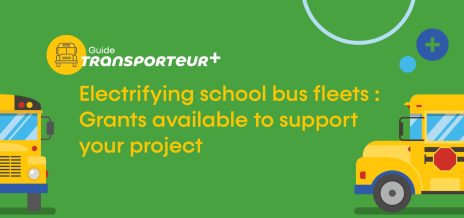
Electrifying school bus fleets : Grants available to support your project
In this series of articles, we demystify the key steps of converting your school bus fleet to electric power thanks to the Transporteur+ guide. This guide aims to provide easy and direct access to resources to clarify the steps, issues, conditions and facilitating measures for a successful transition to electrification.
Read more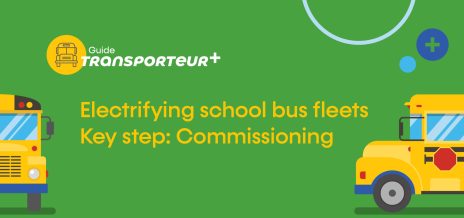
Electrifying school bus fleets | Key step : Comissioning
In this series of articles, we demystify the key steps of converting your school bus fleet to electric power thanks to the Transporteur+ guide. This guide aims to provide easy and direct access to resources to clarify the steps, issues, conditions and facilitating measures for a successful transition to electrification.
Read more
FINANCING | $50 million from Finalta Capital in non-dilutive financing dedicated to the Electric and Smart Transportation sector
Fast growing, innovative companies from the electric and smart transportation (EST) sector in Québec take advantage of the $50 million in funding dedicated to the EST ecosystem by Finalta Capital, one of Canada’s largest funds specialized in non-dilutive tax credit and government grant financing, announced in March 2023 as part of the Impulsion conference, the International EST Summit organized by Propulsion Québec.
Read more
Demand response: Save money by using hydro at the right times
If you could lower your company's hydro bill while contributing to the collective effort to support Quebec’s energy transition, would you? Yes, most likely! How? By curbing power demand for buildings and equipment during peak demand events.
Read more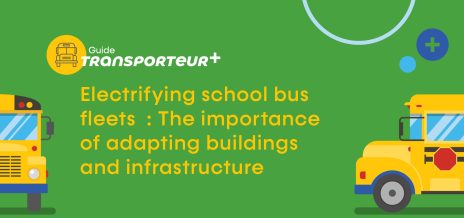
Electrifying school bus fleets : The importance of adapting buildings and infrastructure
In this series of articles, we demystify the key steps of converting your school bus fleet to electric power thanks to the Transporteur+ guide. This guide aims to provide easy and direct access to resources to clarify the steps, issues, conditions and facilitating measures for a successful transition to electrification.
Read more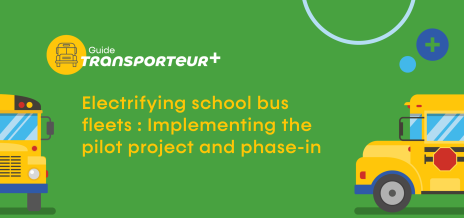
Electrifying school bus fleets : Implementing the pilot project and phase-in
In this series of articles, we demystify the key steps of converting your school bus fleet to electric power thanks to the Transporteur+ guide. This guide aims to provide easy and direct access to resources to clarify the steps, issues, conditions and facilitating measures for a successful transition to electrification
Read more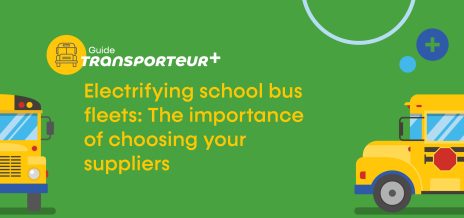
Electrifying school bus fleets: The importance of choosing your suppliers
In this series of articles, we demystify the key steps of converting your school bus fleet to electric power thanks to the Transporteur+ guide. This guide aims to provide easy and direct access to resources to clarify the steps, issues, conditions and facilitating measures for a successful transition to electrification.
Read more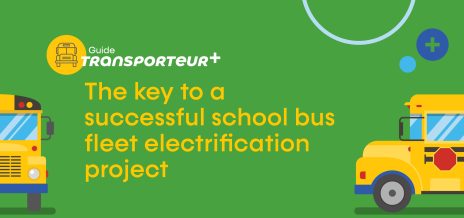
The key to a successful school bus fleet electrification project
In this series of articles, we demystify the key steps of converting your school bus fleet to electric power thanks to the Transporteur+ guide. This guide aims to provide easy and direct access to resources to clarify the steps, issues, conditions and facilitating measures for a successful transition to electrification.
Read more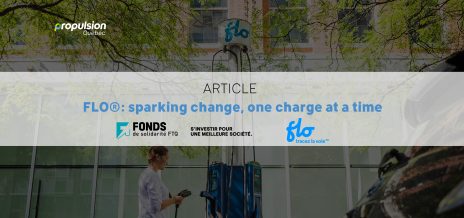
FLO®: sparking change, one charge at a time
FLO became a leader in electric vehicle (EV) charging in North America by integrating the process from start to finish: manufacturing charging stations, developing software and managing its network. To stay ahead of the curve in a fast-moving, innovation-driven market, the company turned to the Fonds de solidarité FTQ to support its growth.
Read more




